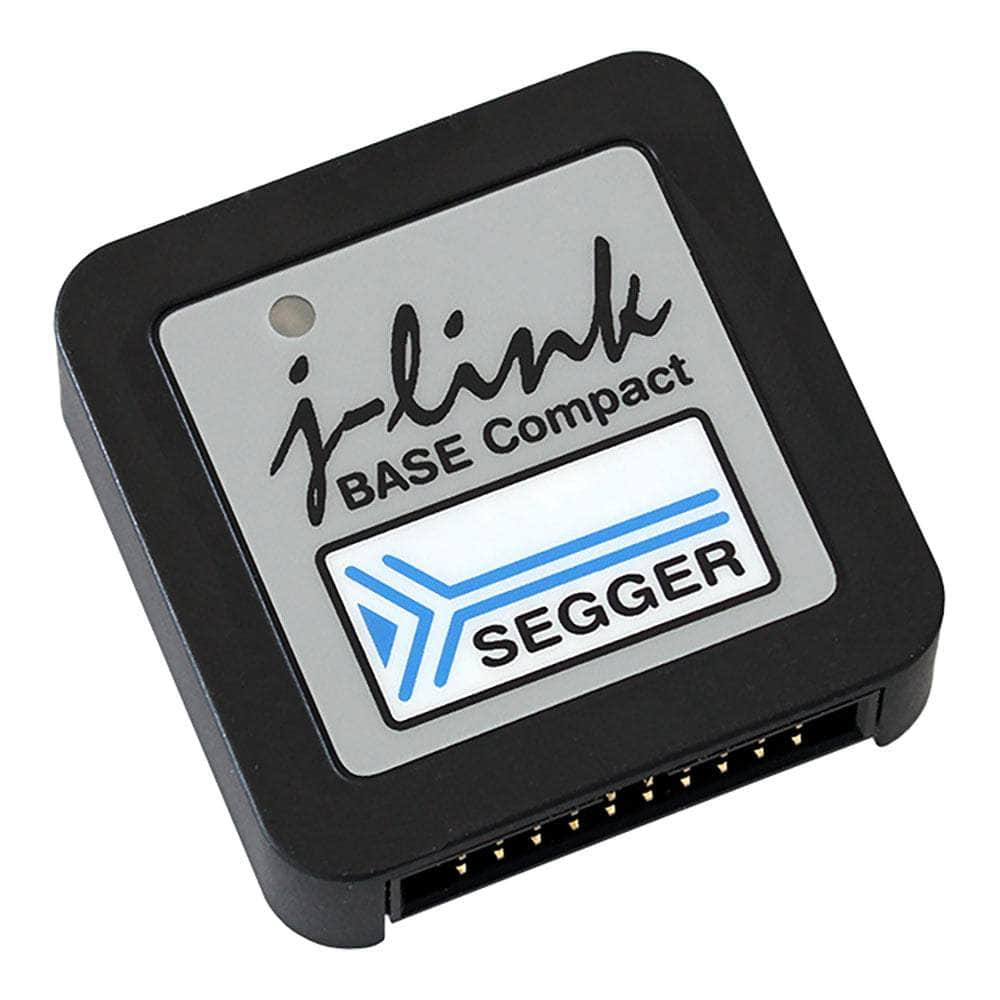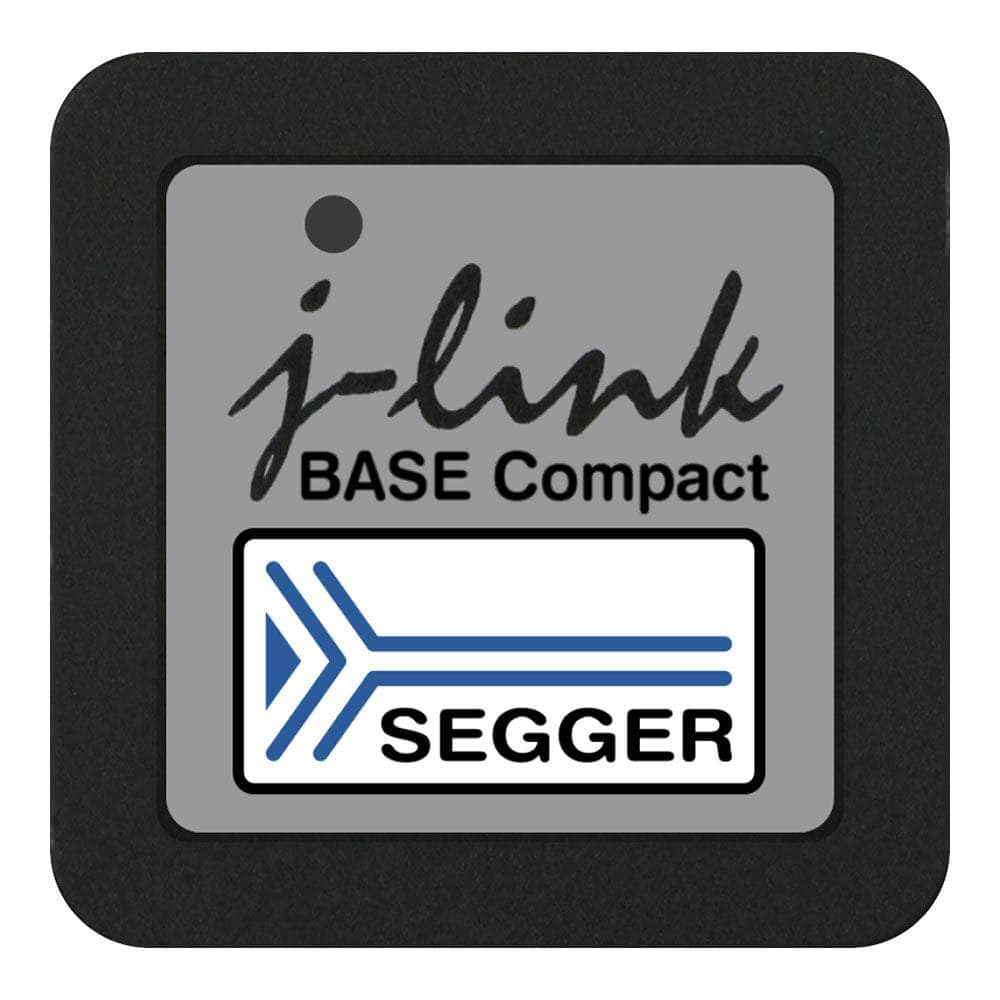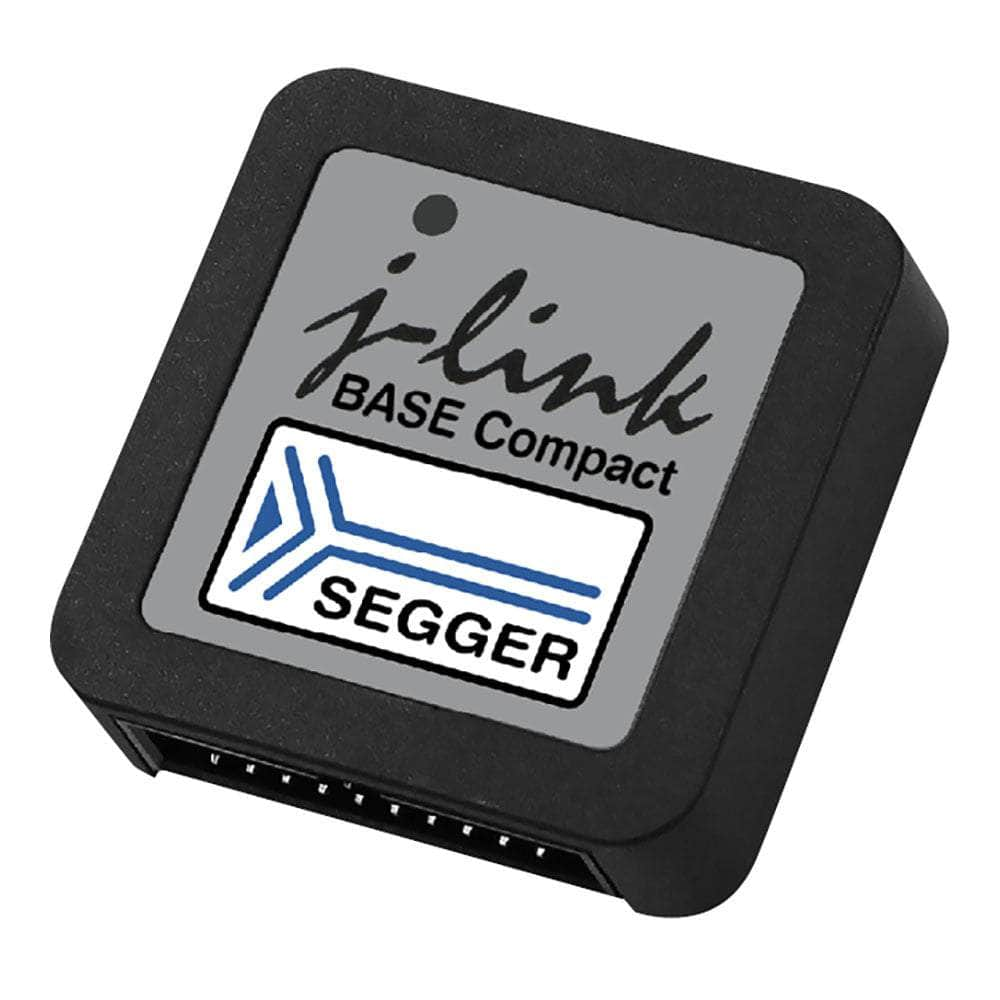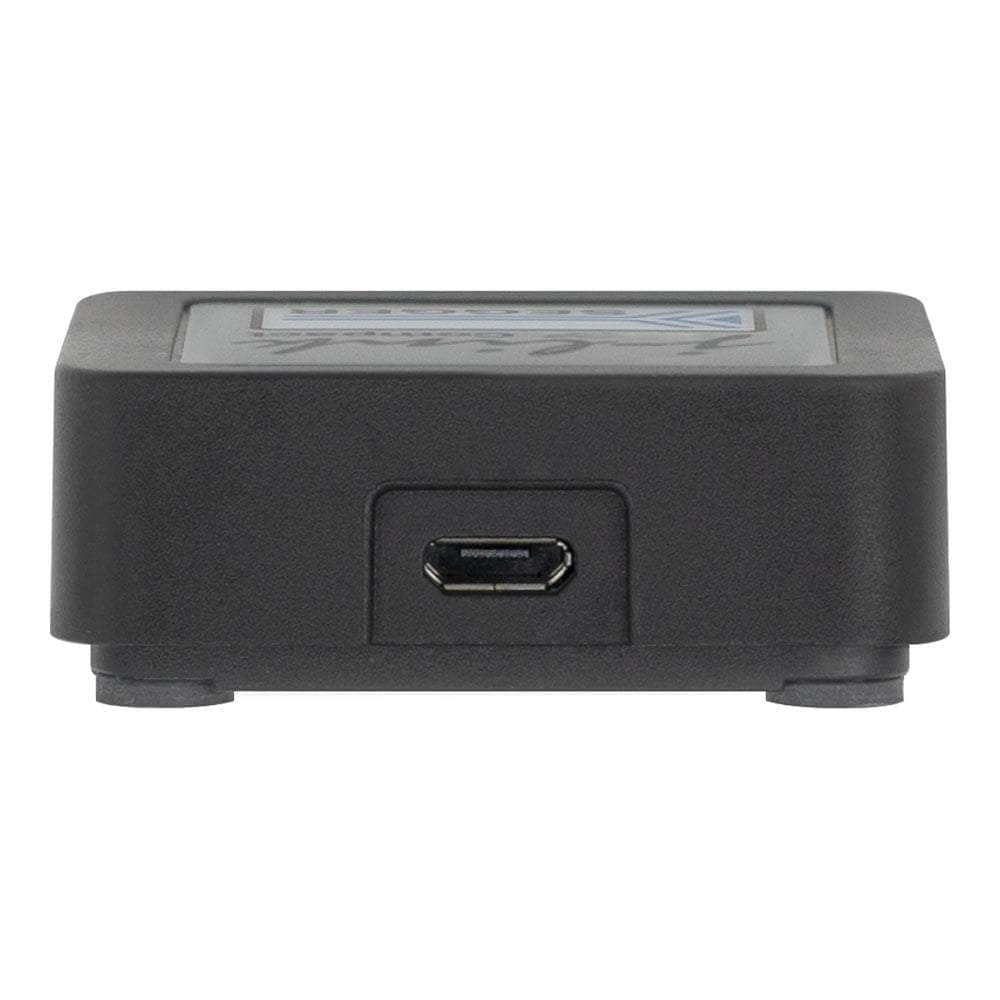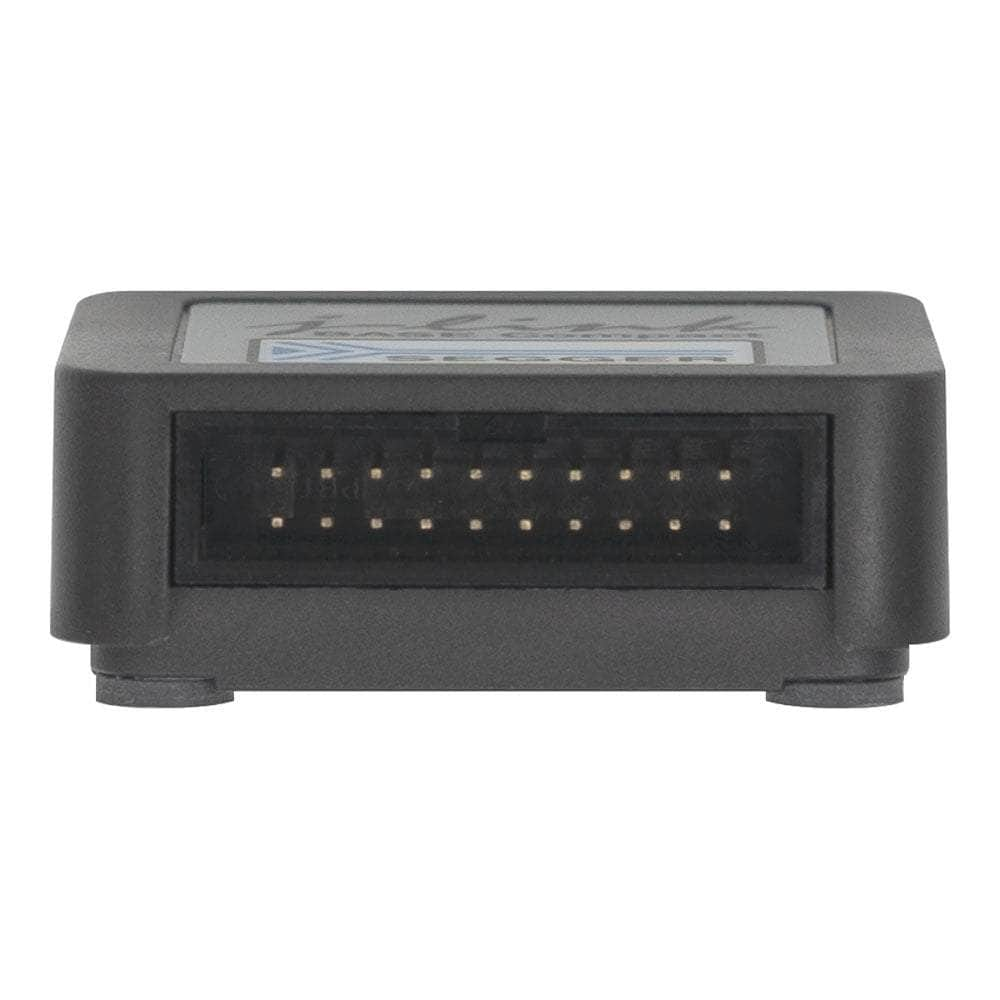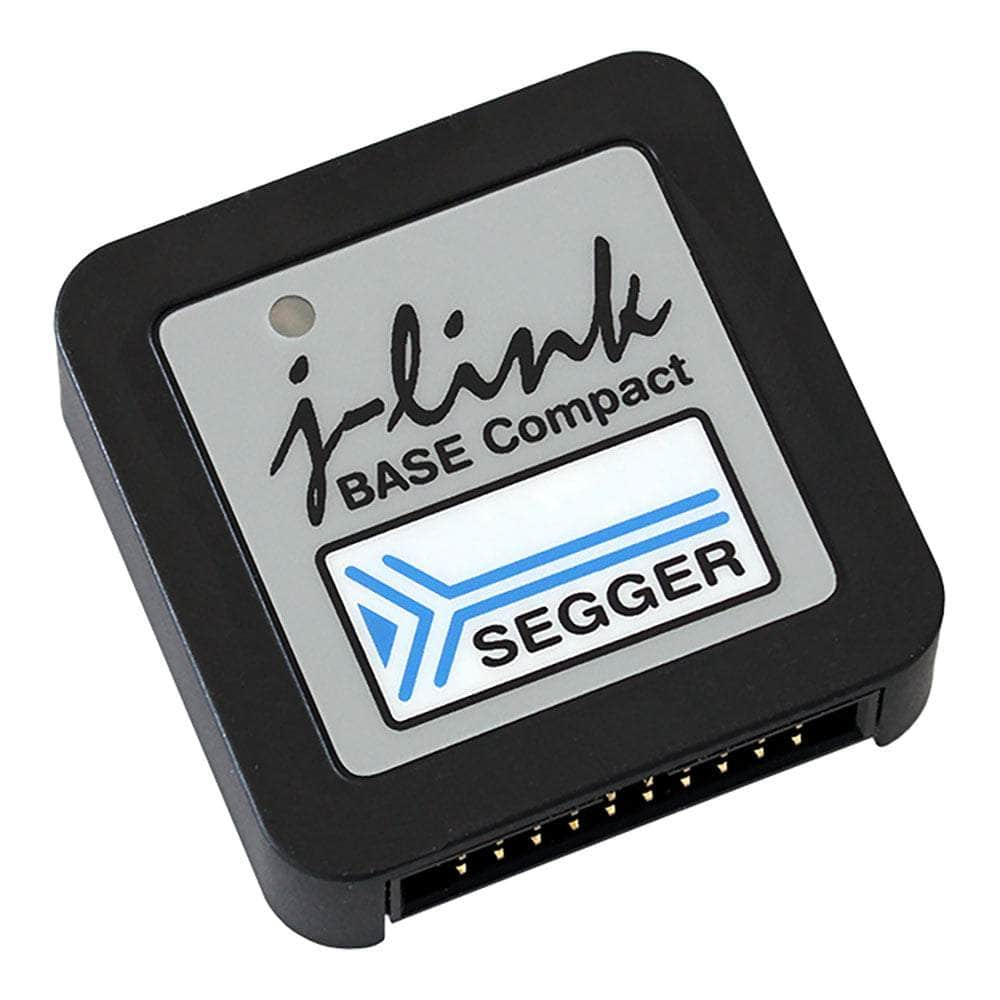
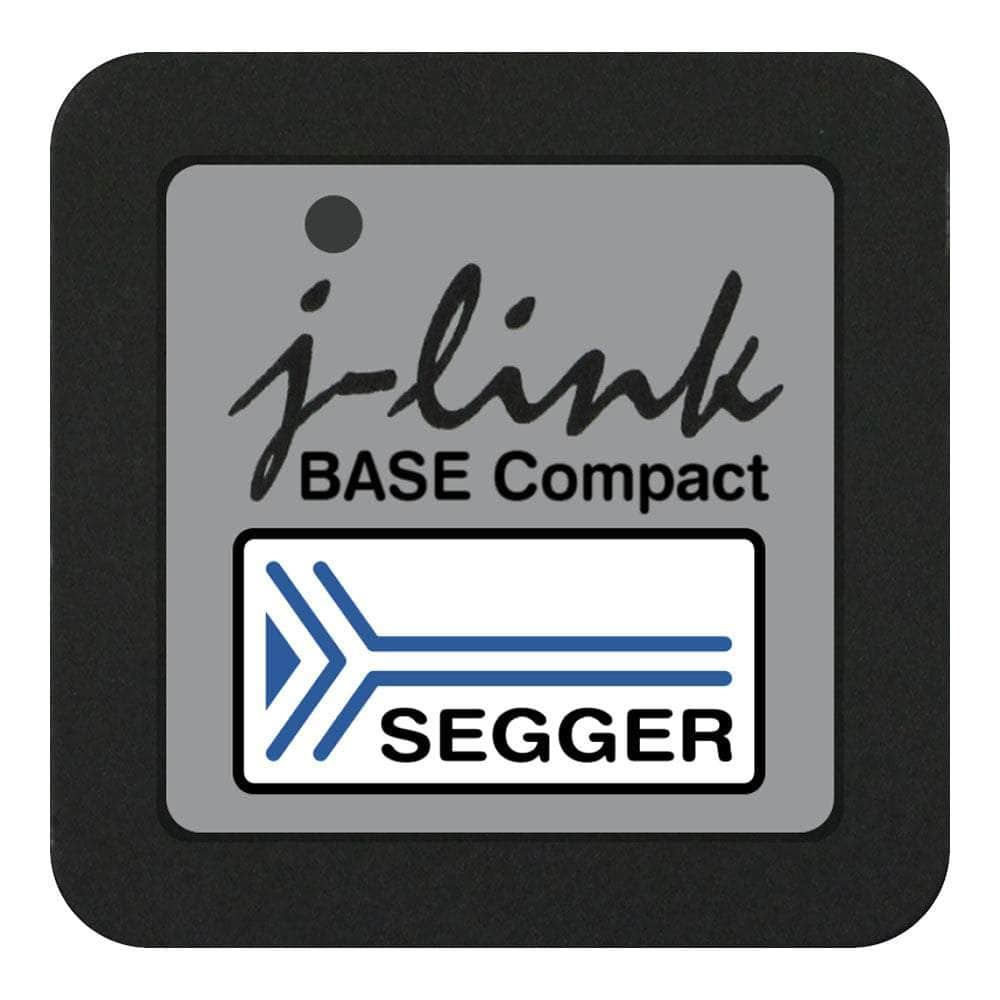
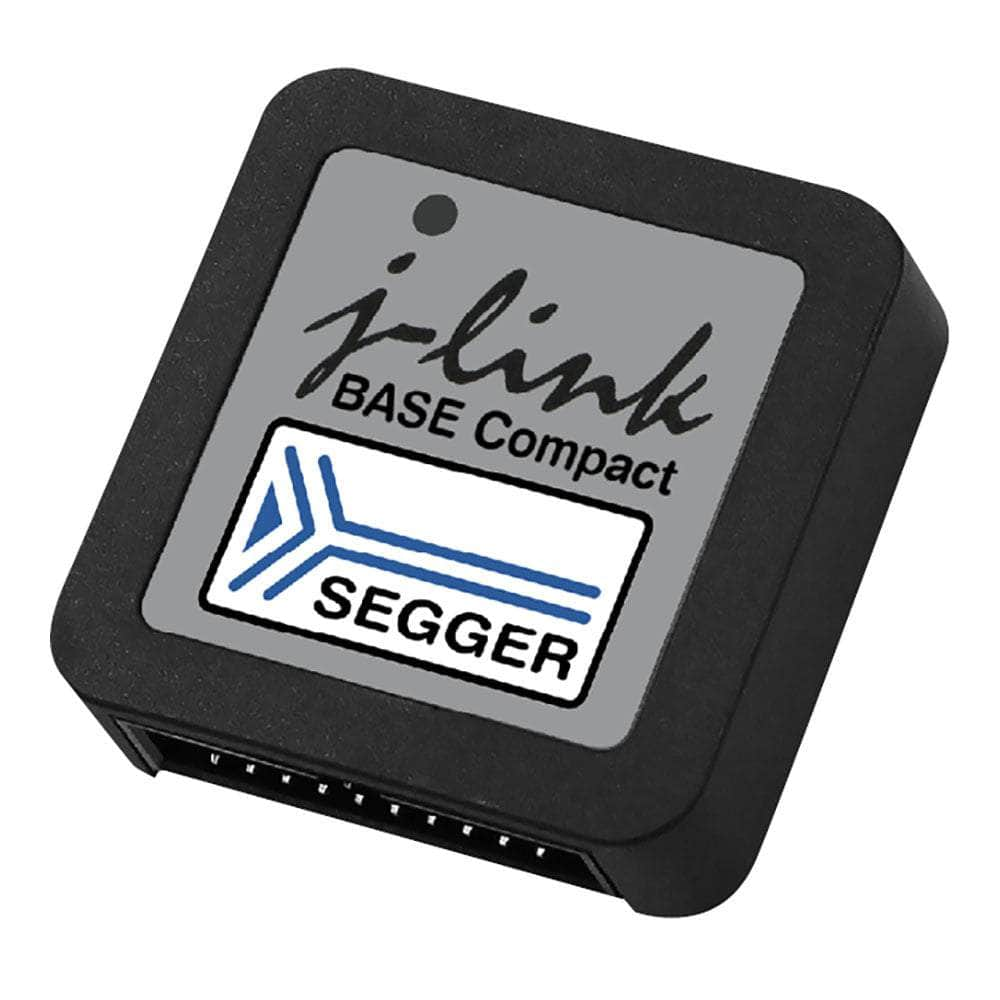
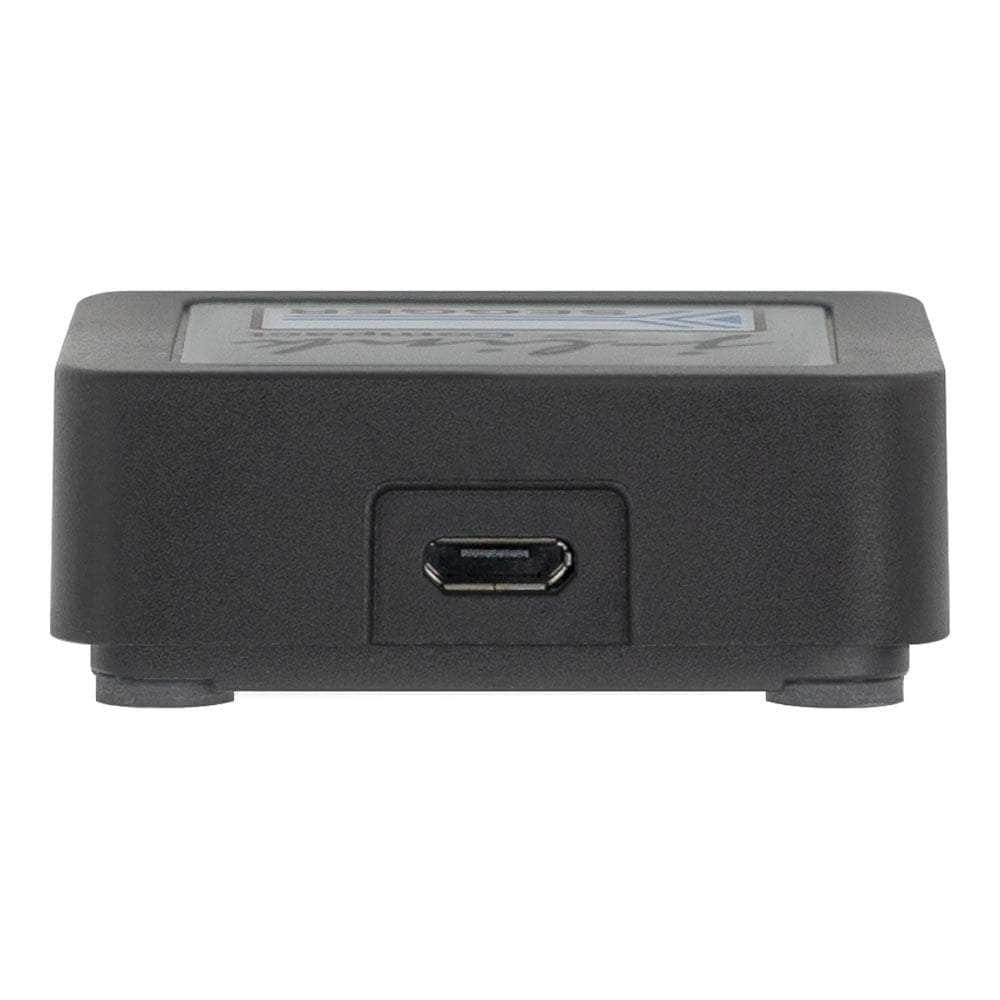
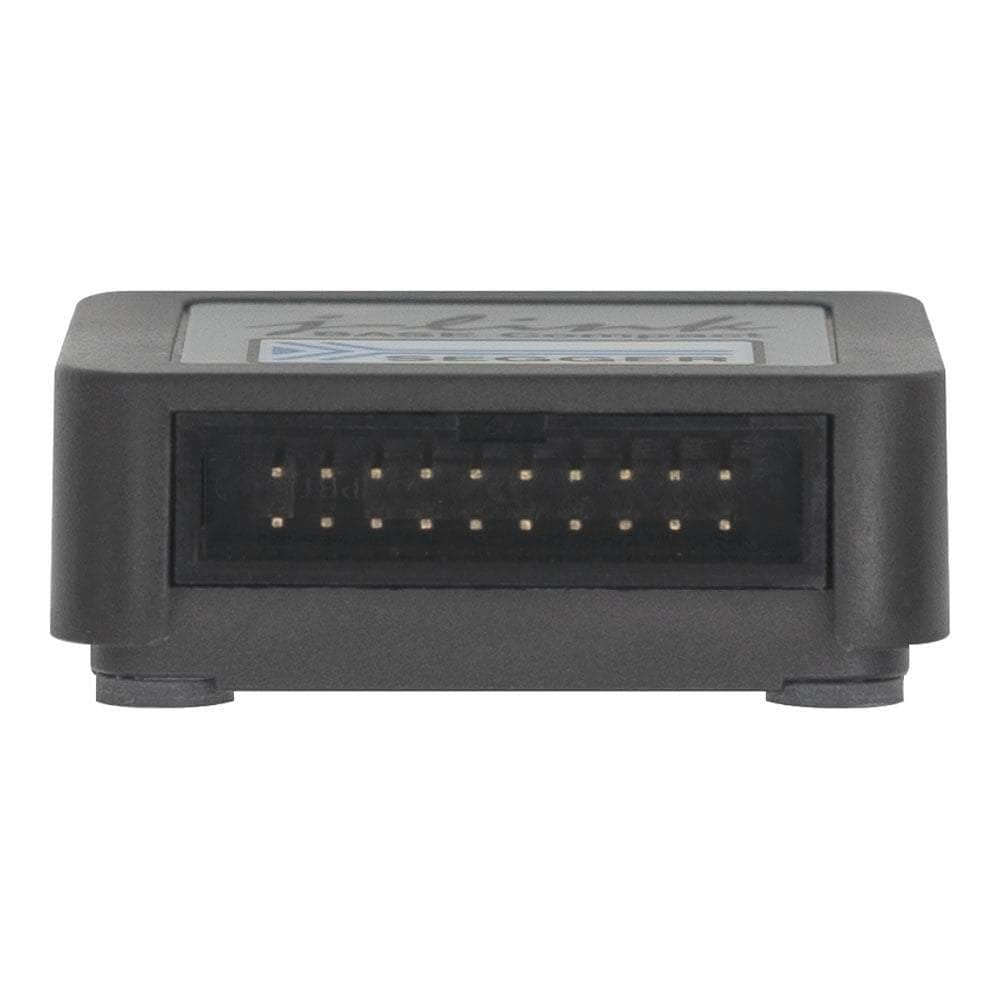
Key Features
Overview
Professional-Grade Debugging in a Compact Form Factor
The SEGGER J-Link BASE Compact represents the perfect entry point into professional embedded debugging for electronic design engineers. This miniaturised version of SEGGER's market-leading J-Link debug probe family delivers exceptional 1 MB/s download speeds whilst maintaining the reliability and extensive device support that has made J-Link the industry standard for ARM Cortex development.
Engineered for Integration
Measuring just 46mm x 46mm x 17mm and weighing only 20g, the J-Link BASE Compact is specifically designed for seamless integration into development systems, test fixtures, and end-user equipment. Two mounting holes enable secure PCB mounting or housing integration, making it ideal for automated test environments and long-term deployment scenarios.
Universal Compatibility and Future-Proof Investment
Supporting JTAG, SWD, SWO, and ICSP interfaces with voltage ranges from 1.2V to 5V, this debug probe works with ARM Cortex-M, Cortex-A, Cortex-R, RISC-V, Renesas RX, Microchip PIC32, and SiLabs 8051 cores. Compatible with all major IDEs including Eclipse, Visual Studio Code, IAR EWARM, Keil µVision, and SEGGER Embedded Studio, ensuring your debugging investment remains valuable across projects and toolchain changes.
The J-Link BASE Compact includes SEGGER's proven Real-Time Transfer (RTT) technology for high-speed bidirectional communication without affecting real-time behaviour, plus built-in VCOM functionality for UART bridging. Free lifetime software updates ensure continued support for new devices and enhanced features.
Also available as J-Link BASE Classic in traditional desktop form factor with identical functionality.
Downloads
Why Engineers Choose The SEGGER J-Link BASE Compact Debug Probe
Secure Mounting
Versatile Target Support
Scalable Functionality
| General Information | |
|---|---|
Part Number (SKU) |
8.19.00
|
Manufacturer |
|
| Physical and Mechanical | |
Weight |
0.5 kg
|
| Other | |
Warranty |
|
Country of Origin |
|
HS Code Customs Tariff code
|
|
EAN |
5055383615261
|
Frequently Asked Questions
Have a Question?
-
Does the J-Link BASE Compact include technical support and documentation?
Yes, purchase includes comprehensive user documentation, one year of basic technical support, and access to SEGGER's extensive knowledge base. Free software updates ensure continued compatibility with new devices and enhanced debugging capabilities throughout the product lifecycle.
-
What software and development environments are compatible?
Compatible IDEs include SEGGER Embedded Studio, Eclipse-based environments, IAR Embedded Workbench, Keil µVision, Visual Studio Code, Atmel Studio, and any GDB-based debugging solution. The J-Link software package supports Windows, Linux, and macOS platforms.
-
Can multiple J-Link BASE Compact units be used simultaneously?
Yes, multiple units can operate concurrently on the same system for parallel device programming, multi-core debugging, or test farm applications. Each unit maintains independent operation with unique serial numbers for identification and control.
-
How does J-Link BASE Compact compare to more expensive J-Link PLUS models?
J-Link BASE Compact provides 1 MB/s download speed versus PLUS models, and lacks unlimited flash breakpoints, J-Flash programming software, and Ozone debugger licences. However, it includes all essential debugging features, RTT technology, and VCOM functionality at a more accessible price point.
-
Which microcontroller families are supported by the J-Link BASE Compact?
Support includes ARM Cortex-M0/M0+/M1/M3/M4/M7/M23/M33/M55/M85, Cortex-A5/A7/A8/A9/A53/A72, Cortex-R4/R5/R8/R52, RISC-V RV32/RV64, Renesas RX series, Microchip PIC32, and SiLabs 8051 cores across thousands of specific device variants.
-
Is the compact form factor suitable for production test environments?
Absolutely. The 46x46x17mm footprint with two mounting holes enables integration into automated test fixtures, production lines, and service equipment. The robust design withstands industrial environments whilst maintaining the same functionality as desktop J-Link variants.
-
What voltage levels and interfaces does the J-Link BASE Compact support?
The probe supports target voltages from 1.2V to 5V and interfaces including JTAG, SWD (Serial Wire Debug), SWO (Serial Wire Output), cJTAG, Microchip ICSP, Renesas FINE, and SiLabs C2. It automatically adapts to target voltage levels and provides 300mA target supply capability.
-
How does Real-Time Transfer (RTT) technology benefit embedded debugging?
RTT enables bidirectional high-speed communication between host and target without requiring UART pins or affecting real-time behaviour. This allows printf-style debugging output, variable monitoring, and input data injection whilst maintaining system timing integrity, crucial for time-sensitive applications.
-
Can the J-Link BASE Compact be used for commercial product development?
Yes, the J-Link BASE Compact includes a full commercial licence permitting use in commercial product development, manufacturing test fixtures, and production environments. This differs from EDU variants which are restricted to educational and non-commercial use only.
-
What makes the J-Link BASE Compact different from cheaper debugging alternatives?
The J-Link BASE Compact features a dedicated 32-bit RISC processor enabling intelligent communication protocols, adaptive clocking, and robust operation at various target speeds. Unlike basic USB-to-JTAG converters, it provides hardware-accelerated flash programming, unlimited software breakpoints, and SEGGER's RTT technology for real-time debugging without performance impact.
-
Why choose BASE Compact over more expensive models?
It offers core debugging functionality and compact mounting for verification fixtures, with scalable upgrade pathways to more advanced tools.
-
What are my upgrade options?
You can purchase the BASE → PLUS upgrade to enable J‑Flash, unlimited breakpoints, Ozone debugger, RDI/RDDI, and more.
-
Can I set unlimited breakpoints in flash memory?
Not by default. Unlimited flash breakpoints require upgrading from BASE to PLUS functionality.
-
Can I use it without a separate power supply?
Yes, it’s USB‑powered and requires no external power source for operation.
-
Does it support real‑time data streaming?
Yes, RTT (Real Time Transfer) enables live data streaming from target to host during debugging.
-
What IDEs are compatible with J‑Link BASE Compact?
Works with GDB‑based IDEs, SEGGER Embedded Studio, Visual Studio Code and other major development environments.
-
How fast is firmware download with BASE Compact?
Up to 1 MB per second into RAM or flash—accelerating development cycles.
-
Which CPU cores does the BASE Compact support?
It supports ARM (legacy and Cortex‑M/R/A), RISC‑V, Renesas RX, Microchip PIC32 and more, making it highly versatile.
-
What is the SEGGER J‑Link BASE Compact used for?
A USB‑powered JTAG/SWD debug probe used for programming and debugging microcontrollers across many CPU architectures in professional firmware development.

